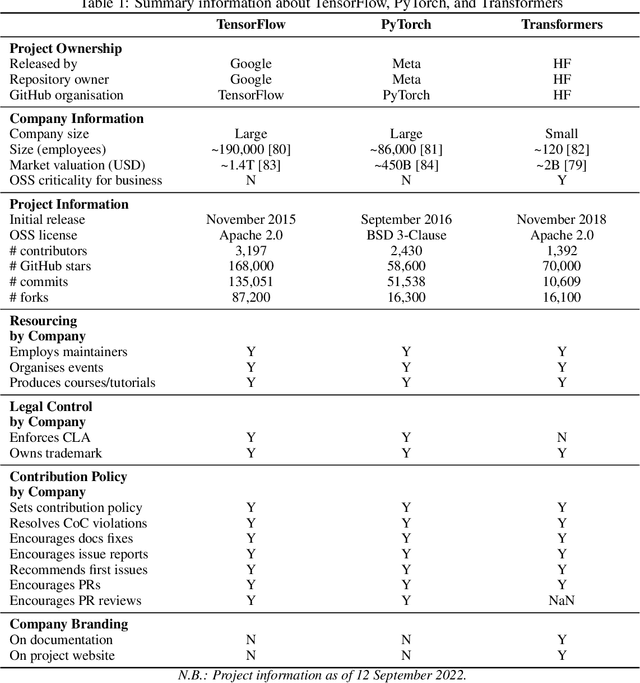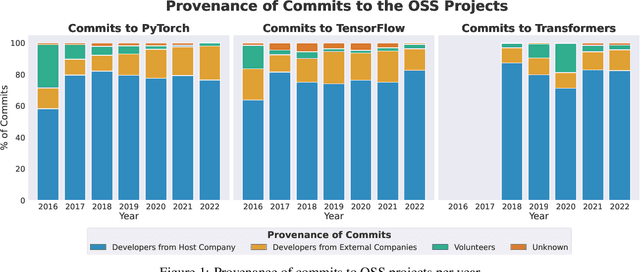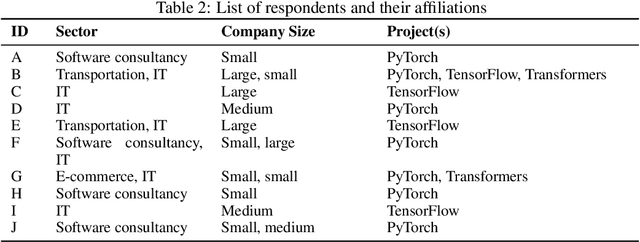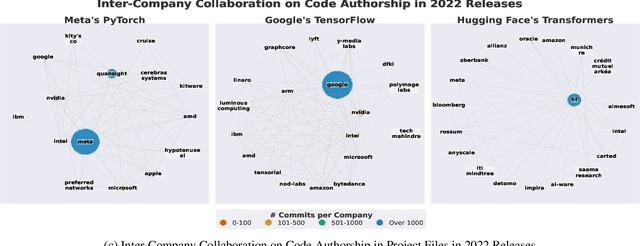Minghui Zhou
Characterising Open Source Co-opetition in Company-hosted Open Source Software Projects: The Cases of PyTorch, TensorFlow, and Transformers
Oct 23, 2024



Abstract:Companies, including market rivals, have long collaborated on the development of open source software (OSS), resulting in a tangle of co-operation and competition known as "open source co-opetition". While prior work investigates open source co-opetition in OSS projects that are hosted by vendor-neutral foundations, we have a limited understanding thereof in OSS projects that are hosted and governed by one company. Given their prevalence, it is timely to investigate open source co-opetition in such contexts. Towards this end, we conduct a mixed-methods analysis of three company-hosted OSS projects in the artificial intelligence (AI) industry: Meta's PyTorch (prior to its donation to the Linux Foundation), Google's TensorFlow, and Hugging Face's Transformers. We contribute three key findings. First, while the projects exhibit similar code authorship patterns between host and external companies (80%/20% of commits), collaborations are structured differently (e.g., decentralised vs. hub-and-spoke networks). Second, host and external companies engage in strategic, non-strategic, and contractual collaborations, with varying incentives and collaboration practices. Some of the observed collaborations are specific to the AI industry (e.g., hardware-software optimizations or AI model integrations), while others are typical of the broader software industry (e.g., bug fixing or task outsourcing). Third, single-vendor governance creates a power imbalance that influences open source co-opetition practices and possibilities, from the host company's singular decision-making power (e.g., the risk of license change) to their community involvement strategy (e.g., from over-control to over-delegation). We conclude with recommendations for future research.
A First Look at License Compliance Capability of LLMs in Code Generation
Aug 05, 2024



Abstract:Recent advances in Large Language Models (LLMs) have revolutionized code generation, leading to widespread adoption of AI coding tools by developers. However, LLMs can generate license-protected code without providing the necessary license information, leading to potential intellectual property violations during software production. This paper addresses the critical, yet underexplored, issue of license compliance in LLM-generated code by establishing a benchmark to evaluate the ability of LLMs to provide accurate license information for their generated code. To establish this benchmark, we conduct an empirical study to identify a reasonable standard for "striking similarity" that excludes the possibility of independent creation, indicating a copy relationship between the LLM output and certain open-source code. Based on this standard, we propose an evaluation benchmark LiCoEval, to evaluate the license compliance capabilities of LLMs. Using LiCoEval, we evaluate 14 popular LLMs, finding that even top-performing LLMs produce a non-negligible proportion (0.88% to 2.01%) of code strikingly similar to existing open-source implementations. Notably, most LLMs fail to provide accurate license information, particularly for code under copyleft licenses. These findings underscore the urgent need to enhance LLM compliance capabilities in code generation tasks. Our study provides a foundation for future research and development to improve license compliance in AI-assisted software development, contributing to both the protection of open-source software copyrights and the mitigation of legal risks for LLM users.
 Add to Chrome
Add to Chrome Add to Firefox
Add to Firefox Add to Edge
Add to Edge